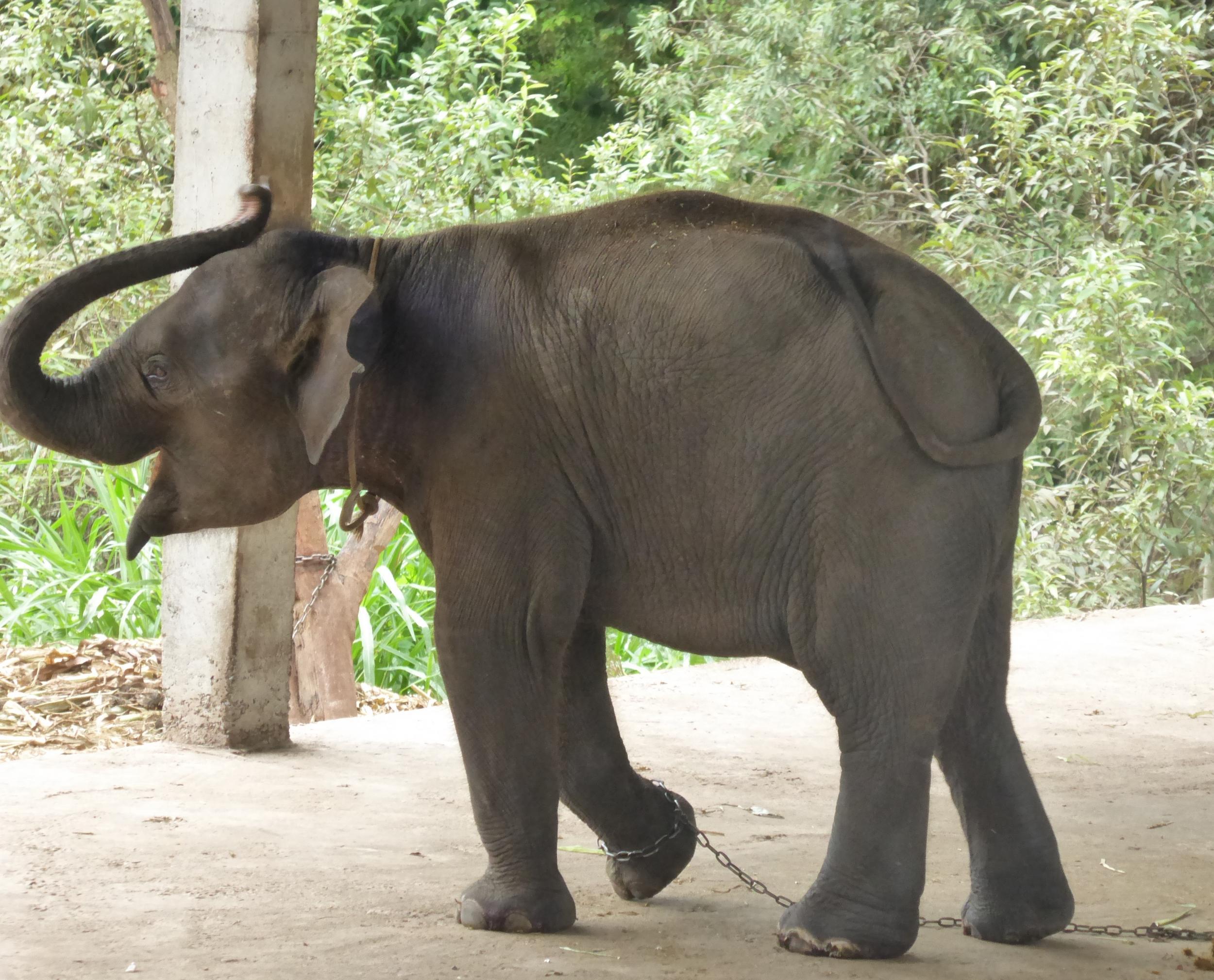Elephants in Thailand to have DNA registered
Under new laws, the genetic code of all captive Thai elephants will have to be recorded to help distinguish them from their wild counterparts

Your support helps us to tell the story
From reproductive rights to climate change to Big Tech, The Independent is on the ground when the story is developing. Whether it's investigating the financials of Elon Musk's pro-Trump PAC or producing our latest documentary, 'The A Word', which shines a light on the American women fighting for reproductive rights, we know how important it is to parse out the facts from the messaging.
At such a critical moment in US history, we need reporters on the ground. Your donation allows us to keep sending journalists to speak to both sides of the story.
The Independent is trusted by Americans across the entire political spectrum. And unlike many other quality news outlets, we choose not to lock Americans out of our reporting and analysis with paywalls. We believe quality journalism should be available to everyone, paid for by those who can afford it.
Your support makes all the difference.Thailand has just announced a new law for all elephant owners which required them to adopt a DNA Registration System to keep track of all captive elephants. This comes in response to a number of investigations carried out by NGO Elephant Family and mounting pressure from the conservation sector.This important step will ensure that captive-bred elephants can be easily distinguished from their wild counterparts. The news comes during the 17th Conference of the Parties for the Convention on International Trade in Endangered Species (CITES) in South Africa.
“In order to save our wild elephants, we need to properly monitor the population of captive elephants,”said Adisorn Nuchdamrong, the Deputy Director General of the Department of National Parks in Thailand.
Elephant Family an NGO dedicated to saving the Asian elephant, has been instrumental in exposing the illegal trade which sees wild baby elephants captured and passed as captive-born for the lucrative tourism and entertainment industry. At present, Thailand’s 3,500-4,000 captive elephants are registered by means of a microchip or photo identification which can be easily swapped and forged. This allows room for wild elephants to be smuggled into tourist camps and disguised as captive elephants. Elephant Family will now provide financial and technical assistance for the implementation of the DNA registration system and will be discussing this with other range states.
“We will now start collecting the DNA of all captive elephants through blood samples which we plan to complete within six months,” said Nuchdamrong. “We aim to have all elephant camps adopt the new DNA registration system within one year.”
To date, elephant camps are only required to register their elephants at eight years of age. This coupled with poor registration systems allows for a loophole in the illegal trade in trafficking of wild elephants. Over the next few months, Thailand’s captive elephants are to be registered within 90 days of birth using the DNA registration system.
“A complete DNA register for all Thailand’s captive elephants is a milestone move for both wild and captive elephants across Asia,” said Ruth Powys, CEO of Elephant Family. “What happens next is, however, key: the registration of all captive new born elephants within 90 days of birth. The enforcement of this new law will close a loophole that currently enables wild elephants to be passed off as captive. Elephant Family will now support other range states in following Thailand’s landmark footsteps.”
Elephant Family will be working with TRACE Wildlife Forensic Network to develop a suitable DNA registration system for other range states that allows rapid and robust testing of domestic elephants to prevent illegal trade. “DNA testing is becoming an invaluable tool to aid the prosecution of wildlife crime, or in this case, to ensure legal compliance with the national legislation of Thailand,” said Dr Ross McEwing, Director of the UK based TRACE Wildlife Forensics Network.
Join our commenting forum
Join thought-provoking conversations, follow other Independent readers and see their replies
Comments